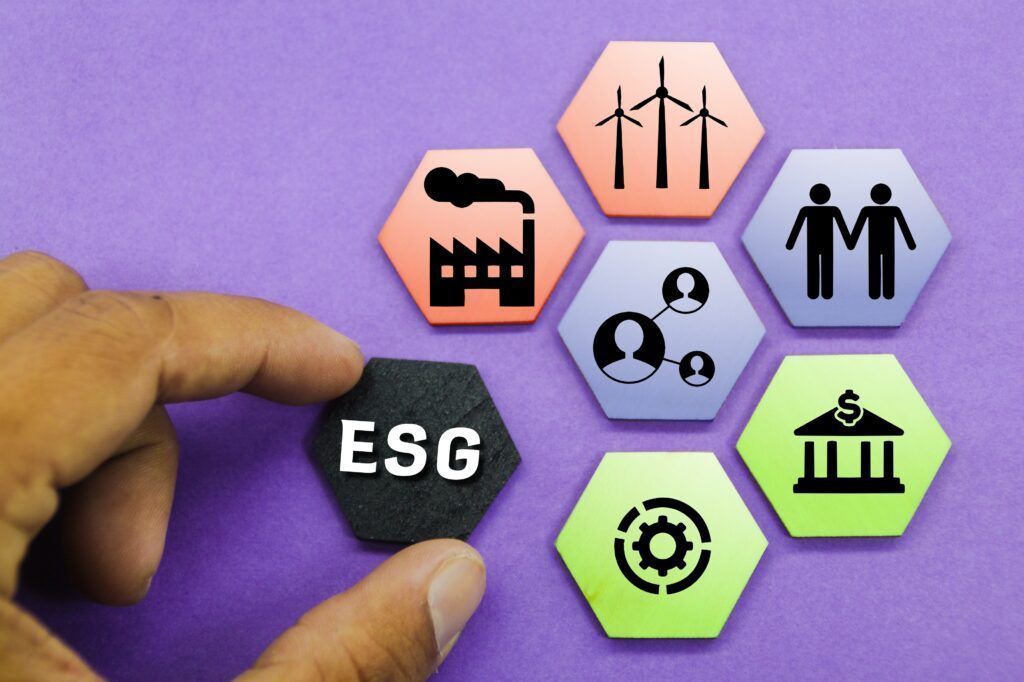The Future of AI in ESG: Transforming Sustainability through Innovation
Artificial intelligence (AI) is rapidly changing the way businesses approach environmental, social, and governance (ESG) practices. As companies aim to make their operations more sustainable, AI has emerged as a game-changer, offering powerful tools to improve decision-making, streamline processes, and identify risks and opportunities. This article explores how AI is transforming ESG initiatives, making sustainability efforts more efficient, transparent, and impactful.


AI is already driving sustainability initiatives across different industries. From optimizing energy use to reducing waste and improving supply chain transparency, AI tools are helping businesses reduce their environmental impact and enhance social responsibility.
For instance, AI algorithms can optimize renewable energy distribution by predicting energy demand and adjusting accordingly. This helps energy providers manage supply more efficiently, reducing waste and improving the overall efficiency of renewable energy sources. In waste management, AI-driven systems can automatically sort recyclable materials, increasing accuracy and reducing landfill waste.
Incorporating AI into these initiatives not only reduces operational costs but also supports businesses in achieving their sustainability goals.
Benefits of AI in ESG
AI offers numerous advantages for organizations aiming to improve their ESG performance:
- Improved Decision-Making: AI analytics help organizations make data-driven decisions, enabling them to identify ESG risks, allocate resources effectively, and develop strategies that align with sustainability goals.
- Operational Efficiency: AI automates various tasks related to energy management, waste reduction, and supply chain optimization, leading to reduced costs and improved performance.
- Increased Transparency: AI tools make it easier to track ESG metrics and produce accurate reports, ensuring better communication with stakeholders and compliance with regulations.
- Risk Management: AI identifies potential ESG-related risks, allowing businesses to address them before they become larger issues. This proactive approach minimizes reputational and financial damage.
- Sustainability Innovation: AI helps organizations explore new solutions for reducing environmental impacts, enhancing social responsibility, and improving corporate governance.
Case Studies: AI's Impact on ESG
Several organizations are already using AI to enhance their ESG efforts:
- Microsoft: The tech giant has implemented AI-powered energy optimization in its data centers. By analyzing real-time data on energy use, weather patterns, and system performance, AI adjusts energy distribution to reduce consumption and carbon emissions.
- Unilever: Unilever's factories use AI-driven waste management systems that automatically sort waste materials. This has helped the company increase recycling rates and reduce landfill waste.
- Siemens: Siemens has developed an AI-powered building management system that optimizes energy consumption and indoor air quality. This system automatically adjusts temperature and lighting based on real-time data, resulting in energy savings and improved working conditions.
These case studies highlight how leading companies are leveraging AI to achieve meaningful progress in sustainability.
Challenges and Limitations of AI in ESG
Despite its potential, AI integration in ESG practices comes with challenges:
- Data Quality: AI relies heavily on high-quality data to produce accurate insights. Inconsistent or incomplete data can lead to inaccurate analyses, reducing the effectiveness of ESG efforts.
- Algorithmic Bias: AI algorithms can sometimes reflect human biases, leading to skewed results. Addressing biases in AI systems is essential to ensure fair and objective ESG assessments.

- Technical Complexity: Implementing AI-powered ESG solutions can be resource-intensive, requiring significant investment in infrastructure and expertise. This can pose challenges for smaller organizations.
- Regulatory Uncertainty: As the field of AI and ESG evolves, regulations are still catching up. Navigating this uncertainty can be difficult, especially as businesses try to comply with emerging standards.
Addressing Reputational Risks with AI
In the modern business landscape, companies must manage not only their internal ESG performance but also their external reputation. Public perception, driven by customer feedback, social media, and investor sentiment, can have a major impact on a company’s success.
NBS factory helps businesses align their internal ESG actions with the external perception created online. Through AI-powered tools that scan millions of conversations, NBS factory enables companies to uncover key topics generating engagement and spot potential reputational risks around ESG topics. This proactive approach ensures that businesses remain aligned with stakeholder expectations while managing potential risks to their brand and reputation.
For more information on how AI can improve your ESG strategy and manage reputational risks, reach out to us at hello@nbs-factory.com
FAQ's ❓
1. How does AI enhance ESG efforts?
AI helps organizations analyze ESG data more effectively, predict risks, and identify opportunities. It streamlines processes like energy management and waste reduction, making sustainability efforts more efficient.
2. What are the benefits of using AI in ESG?
AI improves decision-making, increases operational efficiency, enhances transparency, and helps businesses identify and mitigate risks. It also drives innovation in sustainability efforts.
3. Can AI reduce operational costs in ESG initiatives?
Yes, AI automation reduces manual labor in tasks like energy tracking, waste management, and supply chain optimization, leading to cost savings and better resource management.
4. What challenges do companies face when integrating AI in ESG?
Challenges include ensuring data quality, addressing algorithmic bias, managing technical complexity, and navigating regulatory uncertainties.
5. How can organizations ensure ethical use of AI in ESG?
Organizations can ensure ethical use of AI by implementing robust governance frameworks, conducting regular audits for bias, prioritizing data privacy, and maintaining transparency in their AI processes.











